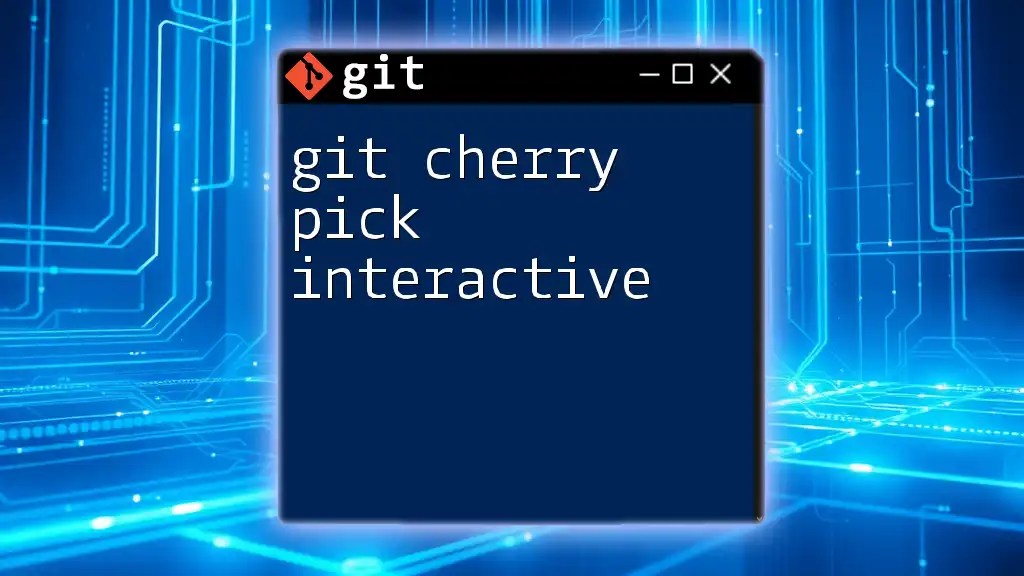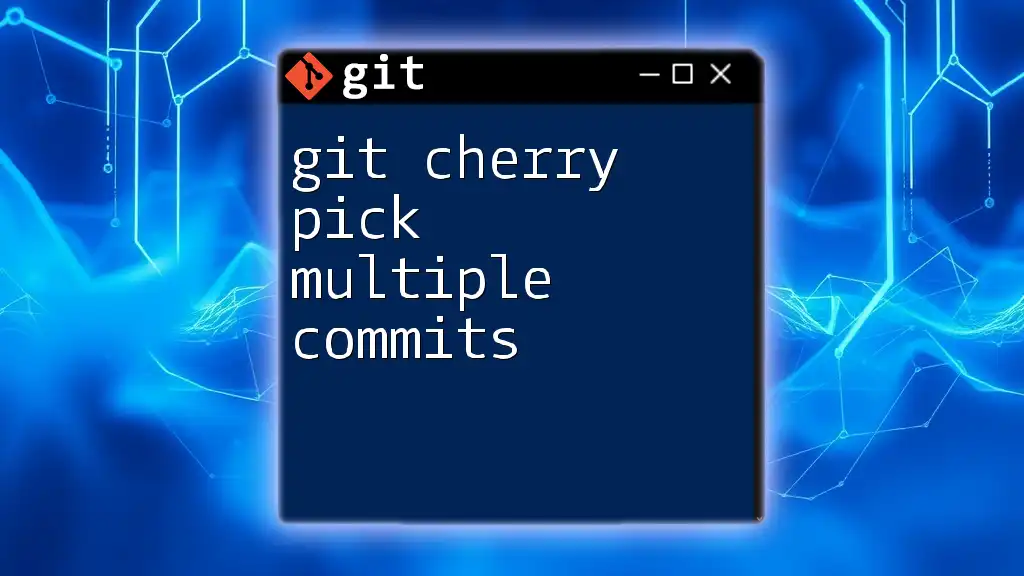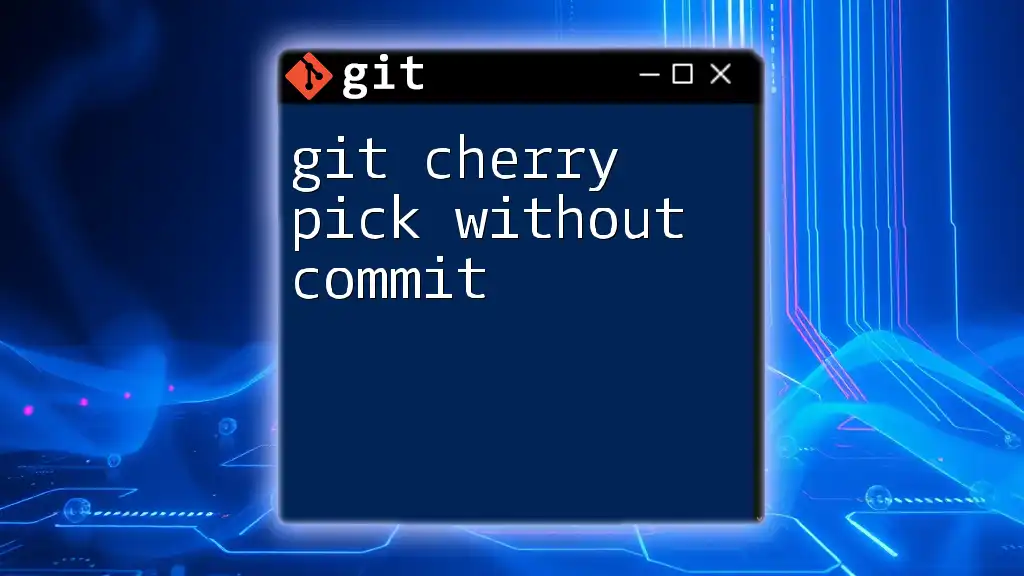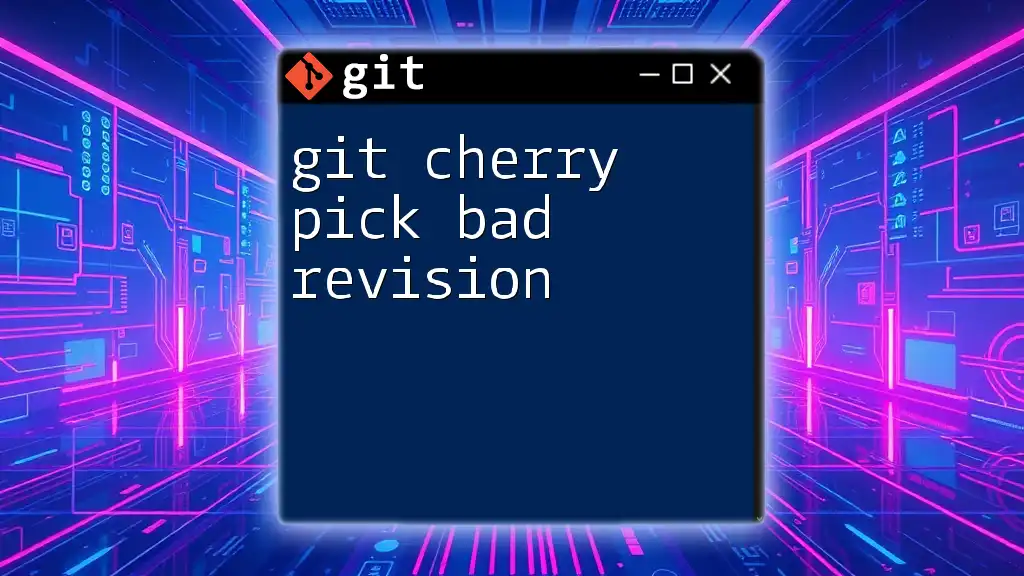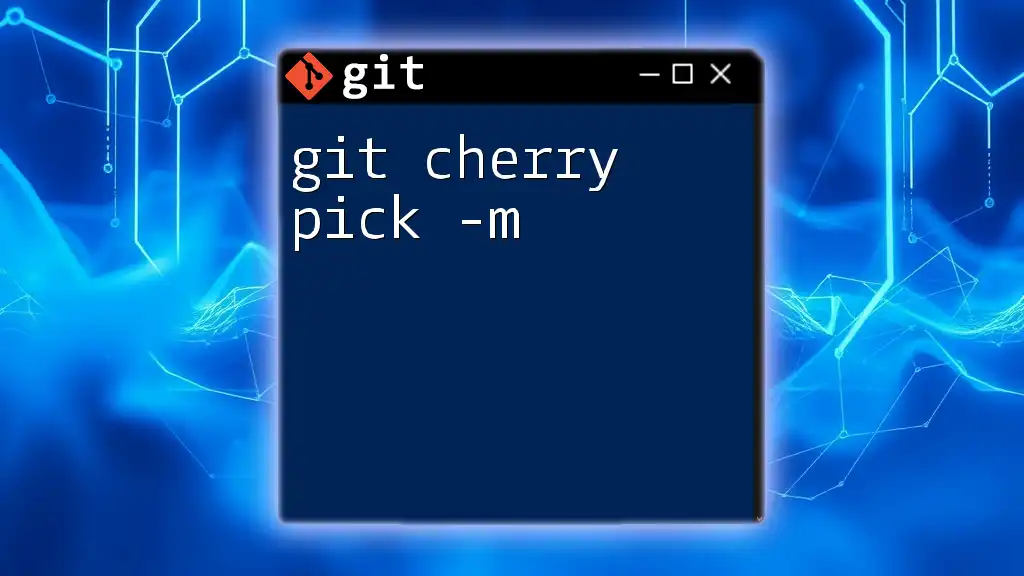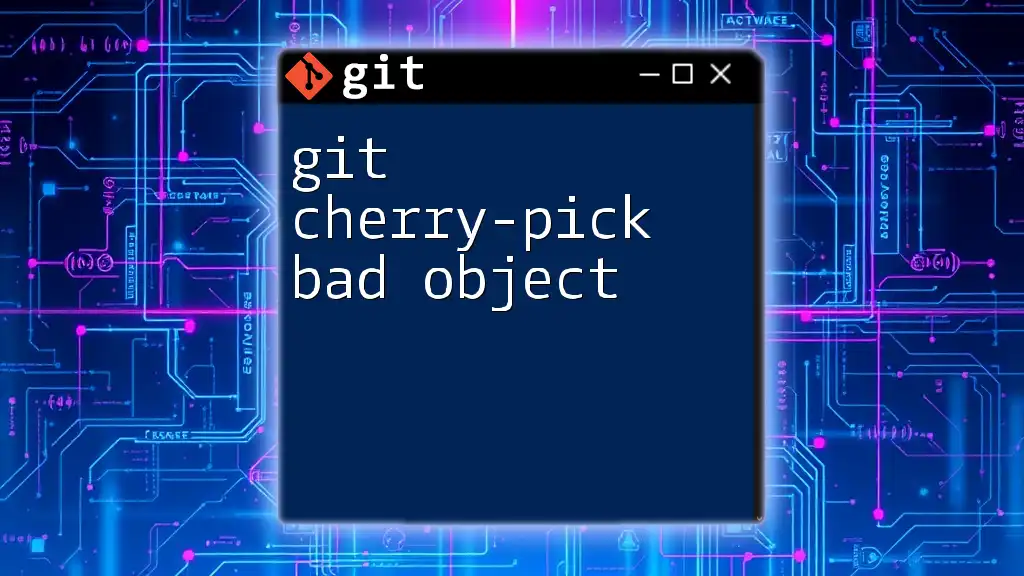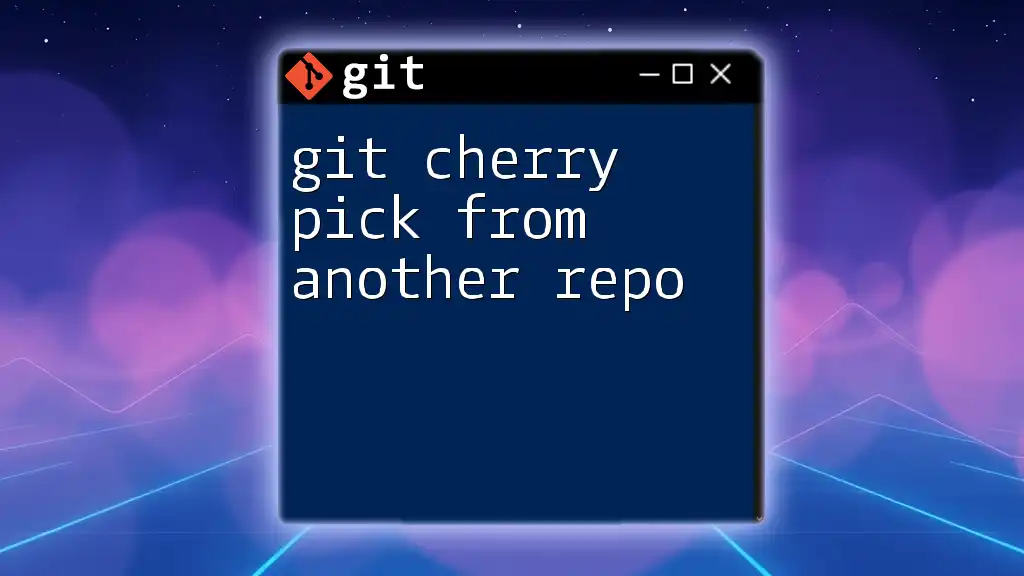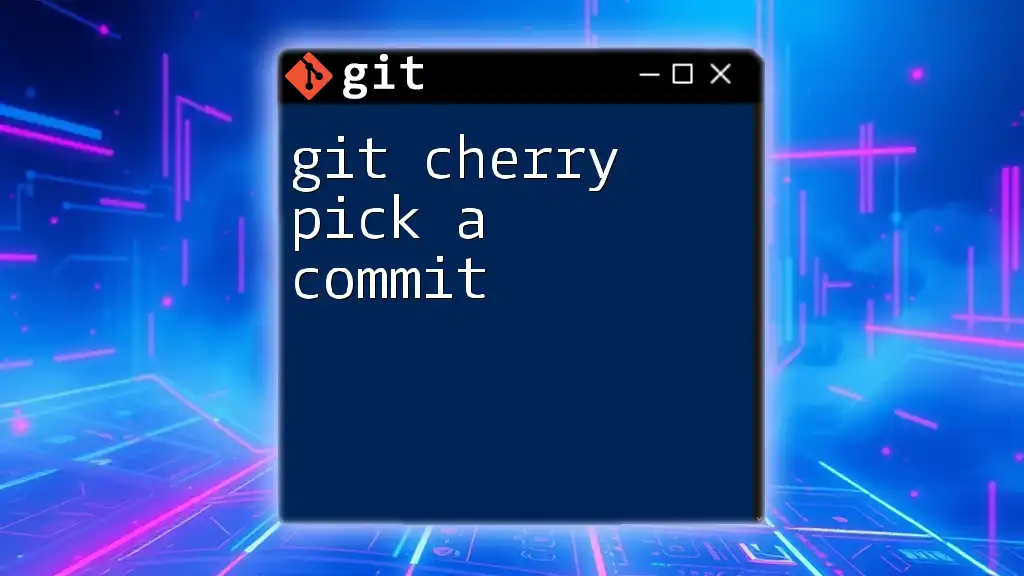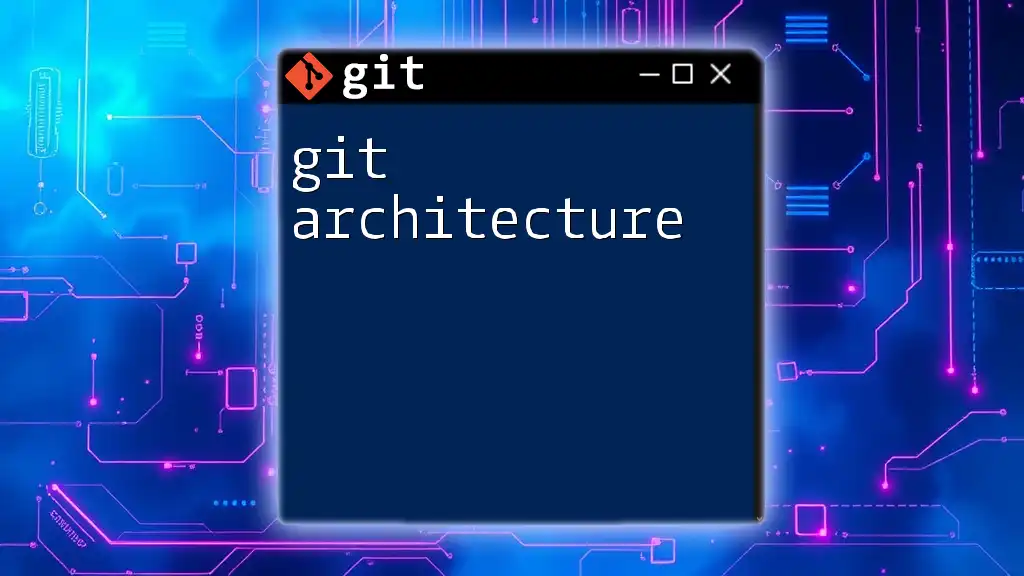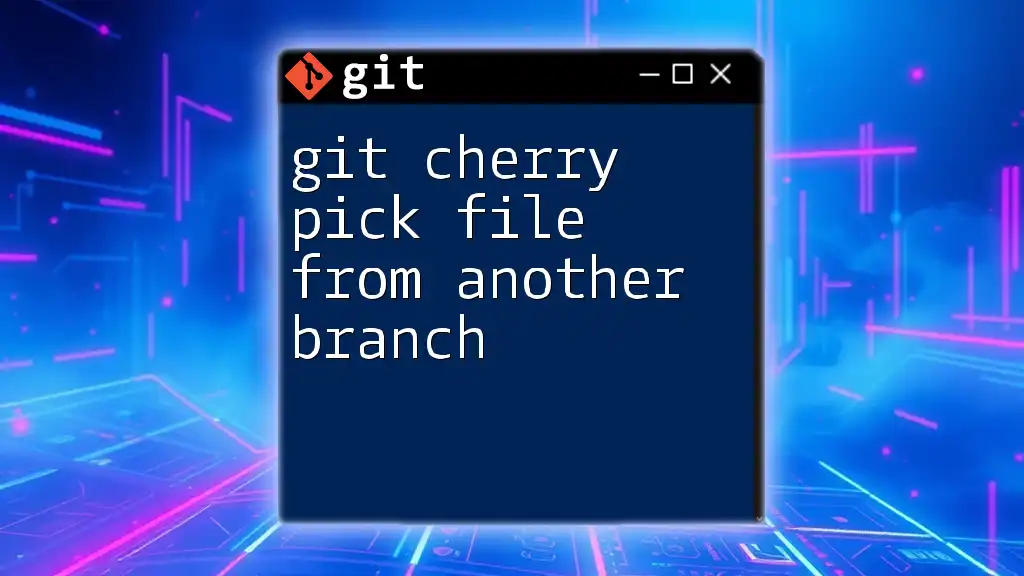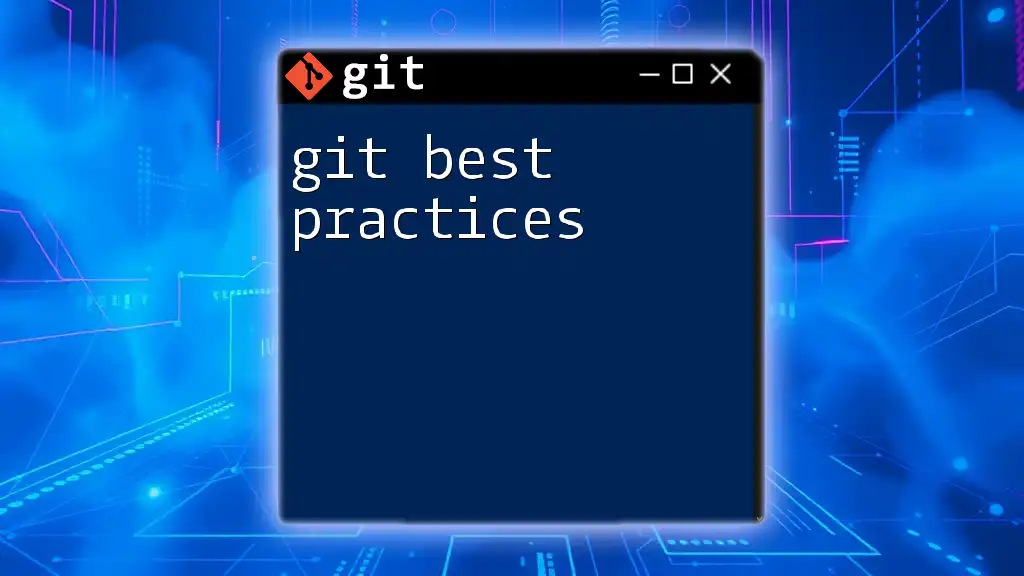"Git cherry-pick interactive allows you to select specific commits from one branch and apply them to another branch in an interactive manner, facilitating granular control over the changes you want to incorporate."
Here’s a code snippet to demonstrate its usage:
git cherry-pick -n <commit_hash1> <commit_hash2> ...
git commit -m "Applied specific changes from previous commits"
What is Git Cherry Pick?
Git cherry-pick is a command in Git that enables users to select specific commits from one branch and apply them to another. This powerful feature is particularly useful for managing hotfixes or pulling in specific improvements without merging an entire branch. By cherry-picking, developers can maintain a cleaner and more organized commit history.
Use Cases
- Selectively apply a commit that fixes a bug to the master branch while working on a different feature.
- Pull in new features or updates from a development branch without merging all its changes.
- Isolate risky changes and test them separately before full integration.
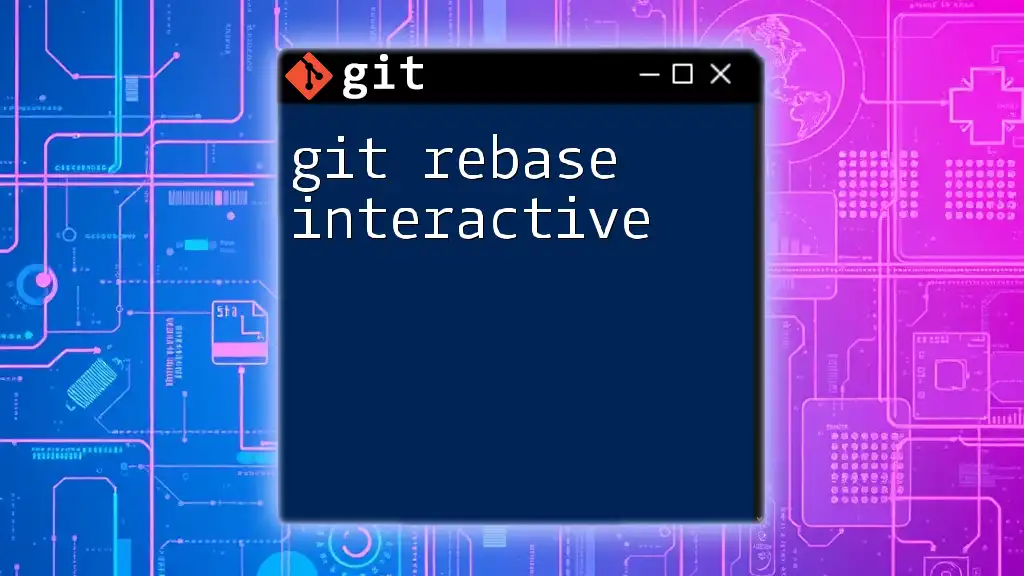
Understanding Interactive Cherry Picking
Interactive cherry-picking expands upon the basic cherry-picking functionality by allowing users to manage and manipulate multiple commits. Unlike the standard cherry-pick process, interactive cherry-picking gives users control over the order of commits, the ability to squash multiple commits into one, and options to edit commit messages.
Use Cases
- Reorder commits to achieve a more logical sequence.
- Combine several related commits into a single one for a cleaner project history.
- Edit commit messages for clarity and accuracy.
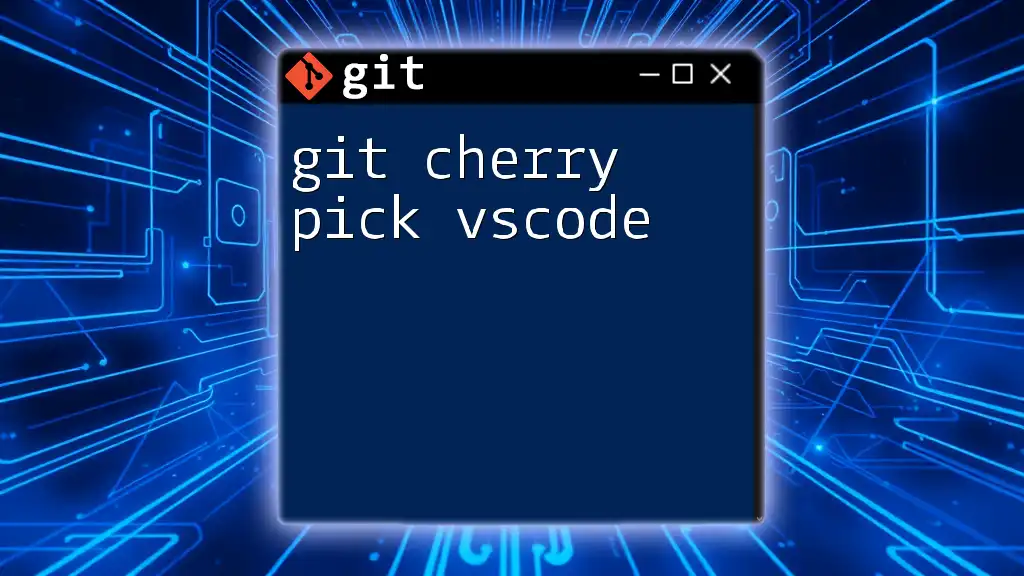
Getting Started with Git Cherry Pick Interactive
Prerequisites
Before diving into interactive cherry-picking, ensure you have a basic understanding of Git and branching. Additionally, make sure you have Git installed on your system.
Clone a Sample Repository
To practice interactive cherry-picking, you can clone a sample repository. Run the following command in your terminal:
git clone https://github.com/example/repo.git
cd repo
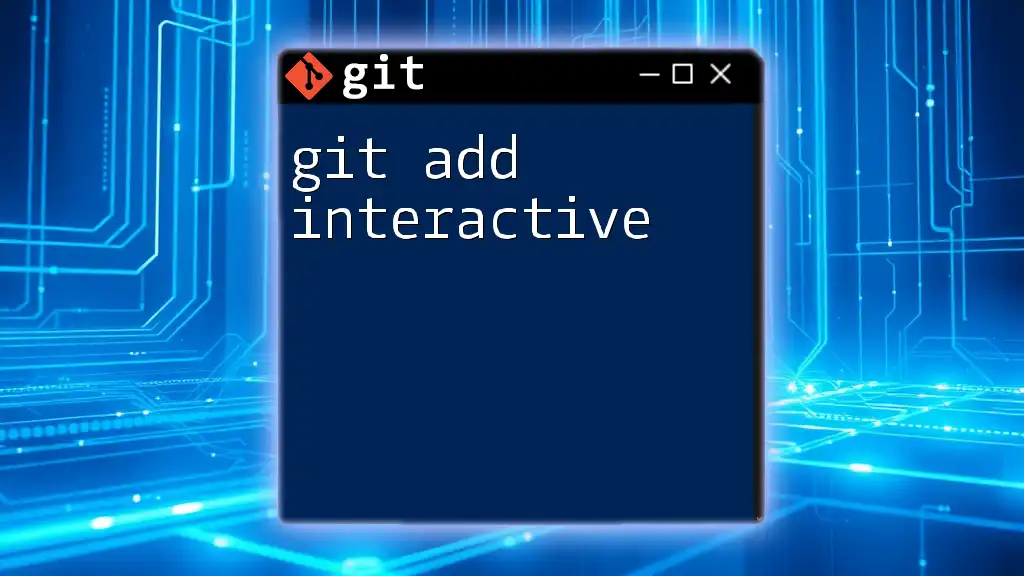
How to Cherry Pick Commits
Using Git Cherry Pick
To cherry-pick a specific commit, the basic syntax is:
git cherry-pick <commit-hash>
For example, if you want to cherry-pick a commit with the hash `abc123`, you would execute:
git cherry-pick abc123
This retrieves the specific changes from that commit and applies them to your current branch.
Common Errors
While cherry-picking, conflicts may arise. If this happens, Git will notify you that there are merge conflicts that need resolution. To abort a cherry-pick process, use the command:
git cherry-pick --abort
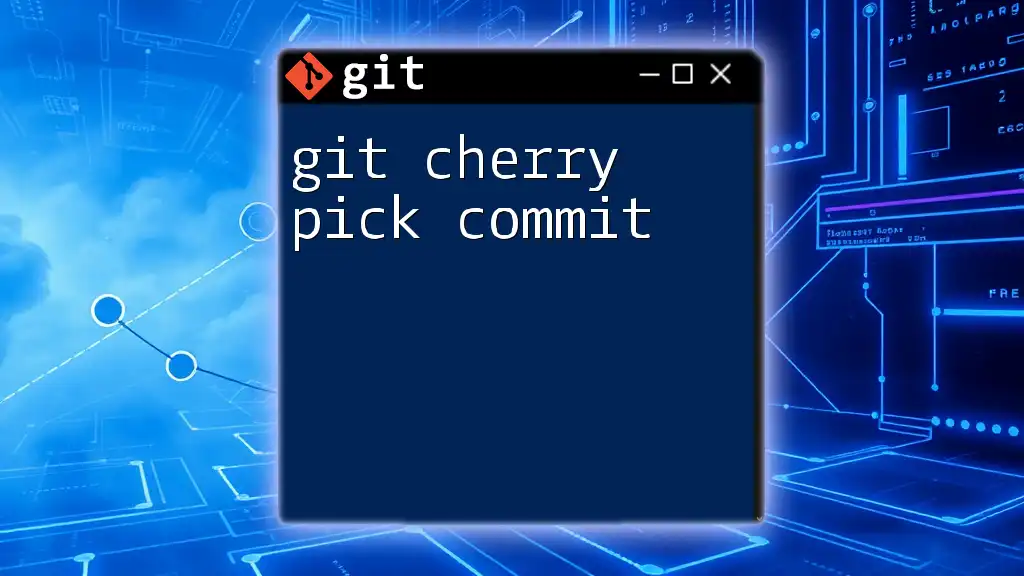
Transitioning to Interactive Cherry Picking
Enabling Interactive Mode
To begin using interactive cherry-picking, you need to enter rebase mode. The command to initiate this is:
git rebase -i HEAD~n
Here, n represents the number of commits you want to consider for cherry-picking. For instance, if you want to include the last 4 commits, you would use `HEAD~4`.
List of Commands Available in Interactive Mode
When you enter interactive mode, you'll see a list of commands at your disposal:
- pick: Use the commit as is.
- reword: Edit the commit message.
- edit: Make changes to the actual commit.
- squash: Combine a commit into the previous one.
These commands enable you to customize how you apply changes from the selected commits.
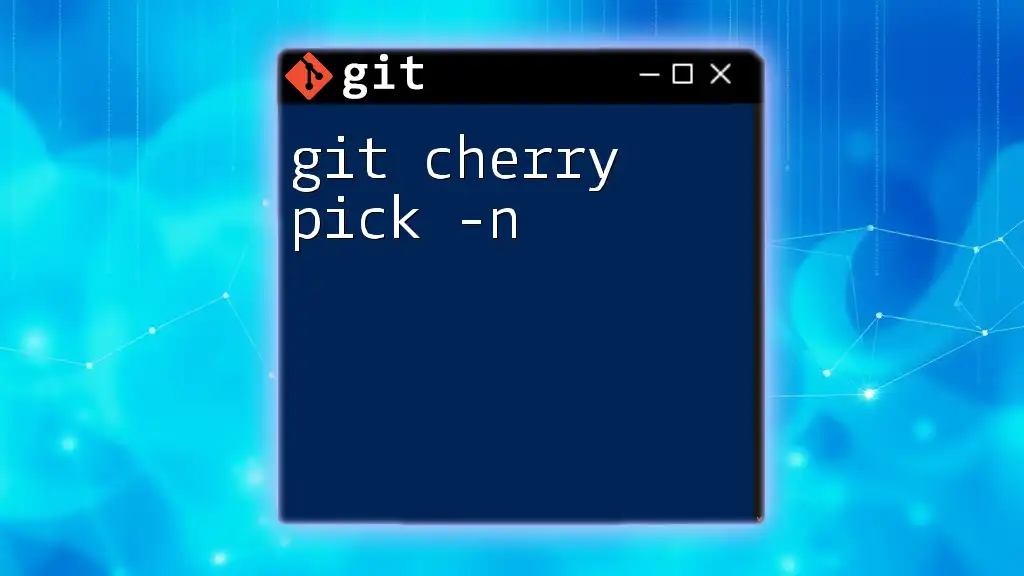
Walkthrough: Performing an Interactive Cherry Pick
Example Scenario
Let’s create a feature branch where we will practice interactive cherry-picking. Start by checking out a new branch:
git checkout -b feature-branch
Starting the Interactive Cherry-Pick
To begin the interactive cherry-pick process, run:
git rebase -i HEAD~4
Examining the Interactive List
Your terminal will display a text editor interface showing the last four commits. Each line will begin with the command `pick` followed by the commit hash and message. Here’s an example of what you might see:
pick abc123 Implement login function
pick def456 Add user authentication
pick ghi789 Update user interface
pick jkl012 Fix bug in logout feature
You can change the `pick` command to any relevant command you wish to use, such as `reword`, `edit`, or `squash`.
Committing Changes
After making your desired changes in the interactive list, save and exit the editor. Git will start applying the changes based on your modifications. You can check the changes by looking at the commit history:
git log --oneline
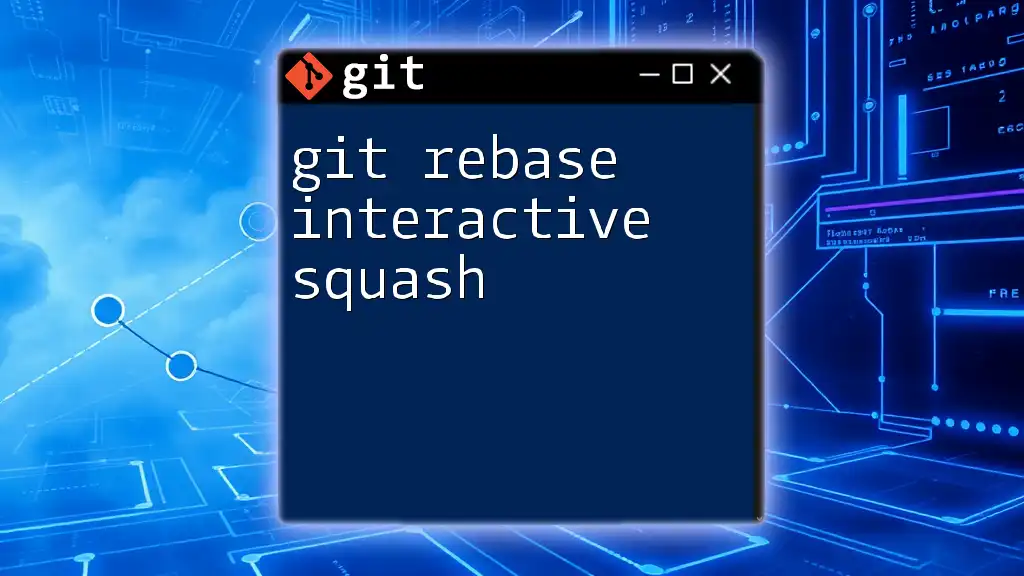
Best Practices for Cherry Picking
When to Use Cherry Picking
While cherry-picking can be advantageous, it’s important to use it judiciously. It's best when you need to isolate a specific fix or feature instead of merging all recent changes.
Avoiding Common Pitfalls
Avoid overusing cherry-pick capabilities, as it may lead to a fragmented commit history that can create confusion for collaborators. Generally, consider using branches and merges for larger features or comprehensive updates to maintain a coherent history.
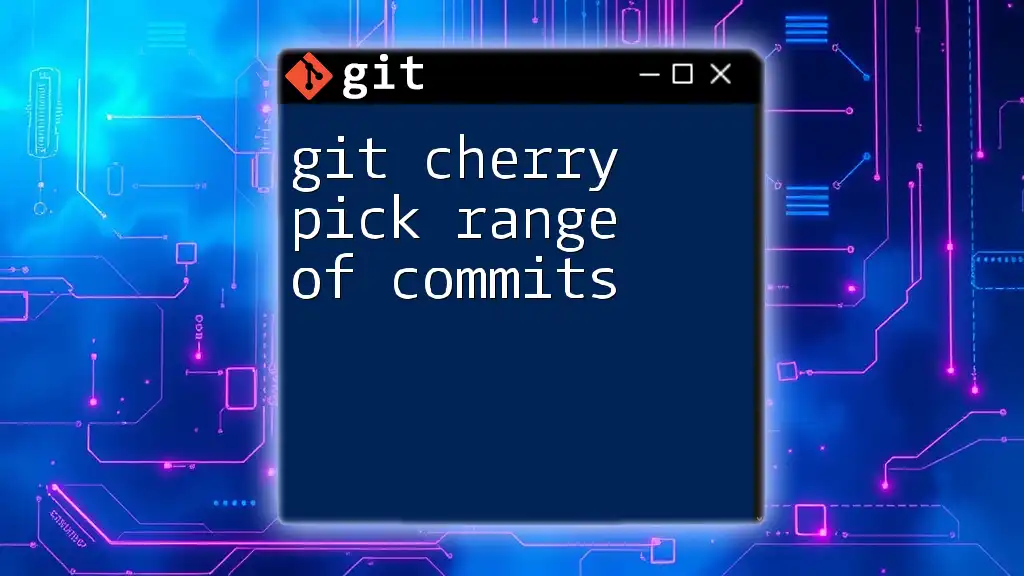
Conclusion
Interactive cherry-picking in Git is an invaluable tool that allows developers to have granular control over their commit history. By practicing this functionality and applying it to real-world scenarios, you can enhance your workflow and application development strategy. As you continue to hone your Git skills, consider exploring additional resources and courses to deepen your mastery.

